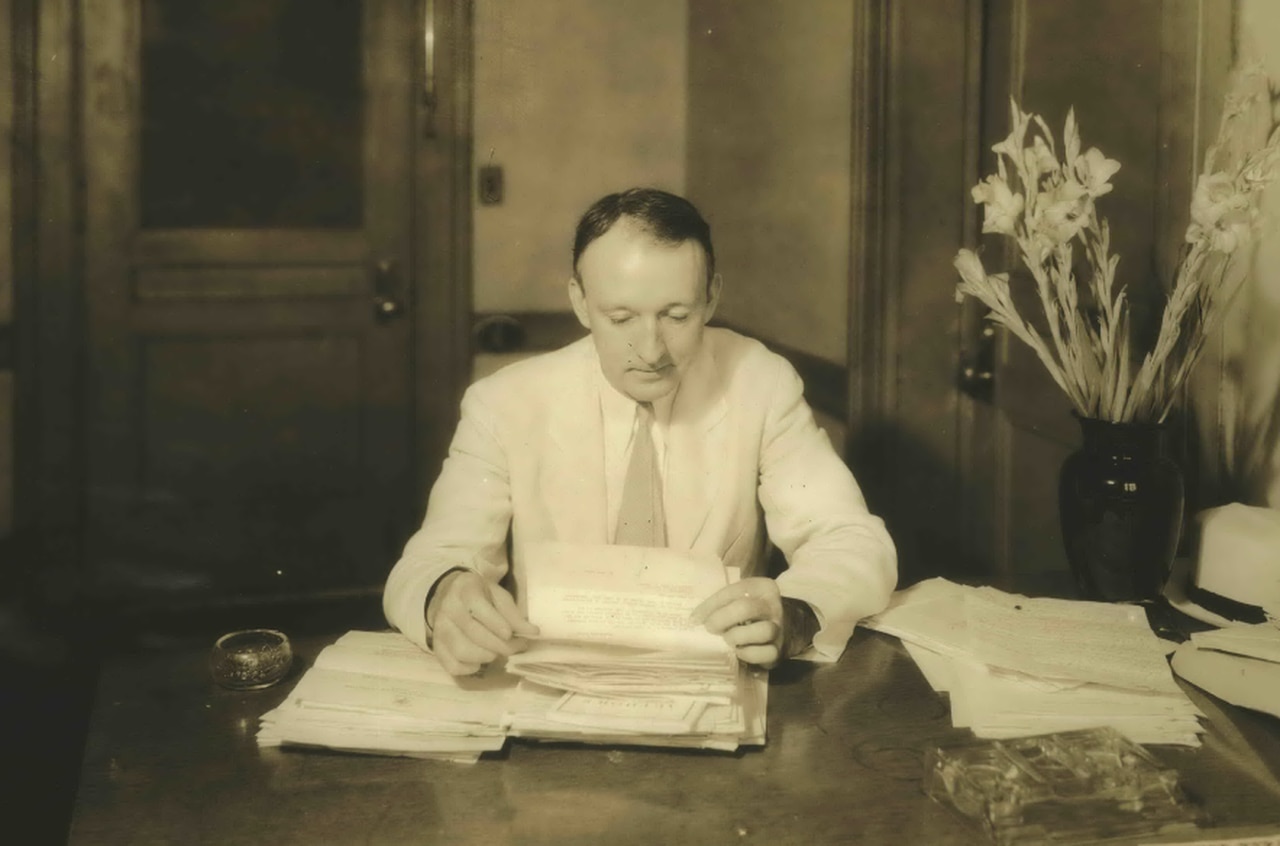Hugo Black monument dedication set
A monument to honor former U.S. Supreme Court Justice Hugo Black in his hometown of Ashland will be dedicated this weekend.
Black was a U.S. senator from Alabama from 1927-37 and an associate justice of the Supreme Court from 1937-71. Black, 85, died on Sept. 25, 1971, shortly after resigning from the court.
Early in his career as an attorney in Birmingham, Black was a member of the Ku Klux Klan, although he later renounced that association and championed liberal decisions on the Supreme Court, including the unanimous ruling in Brown v. Board of Education in 1954 that struck down racial segregation in public schools.
U.S. District Judge Myron H. Thompson of Montgomery and Yale Law School’s Sterling Professor of Law Akhil Reed Amar will speak at the dedication of the Hugo Black Monument and Park in Ashland on Saturday at 2 p.m.
On Friday, Oct. 14, a symposium on Justice Black will be held at the Cumberland Law School on the campus of Samford University at 2 p.m.
Panelists include retired U.S. Judge U.W. Clemon, former U.S. Sen. Doug Jones, retired U.S. Magistrate Vanzetta McPherson, former New York Times Executive Editor Howell Raines, former Alabama Chief Justice Drayton Nabers, who clerked for Justice Black, Lynda K. Walker, CEO of the Tax Council Policy Institute; Professor Bryan Fair of the University of Alabama School of Law; Professor John Carroll of Cumberland School of Law; and Steve Suitts, author of “Hugo Black of Alabama.”
On Saturday at 11 a.m., inside the Hugo Black Courtroom of the Clay County Courthouse, a portrait of Justice Black by Semmie Knox, the first Black artist to paint an official presidential portrait, will be officially unveiled with members of Justice Black’s family attending.
Hosted by the Hugo Black Fund, a tax-exempt charity, the dedication ceremonies honor Justice Black’s contributions to Alabama and the nation. The Monument and Park in Ashland are located on the site of the old family homeplace where Justice Black grew up and came of age until he moved to Birmingham in 1906. They are within sight of the Clay County Courthouse.
All events are free and open to the public.
